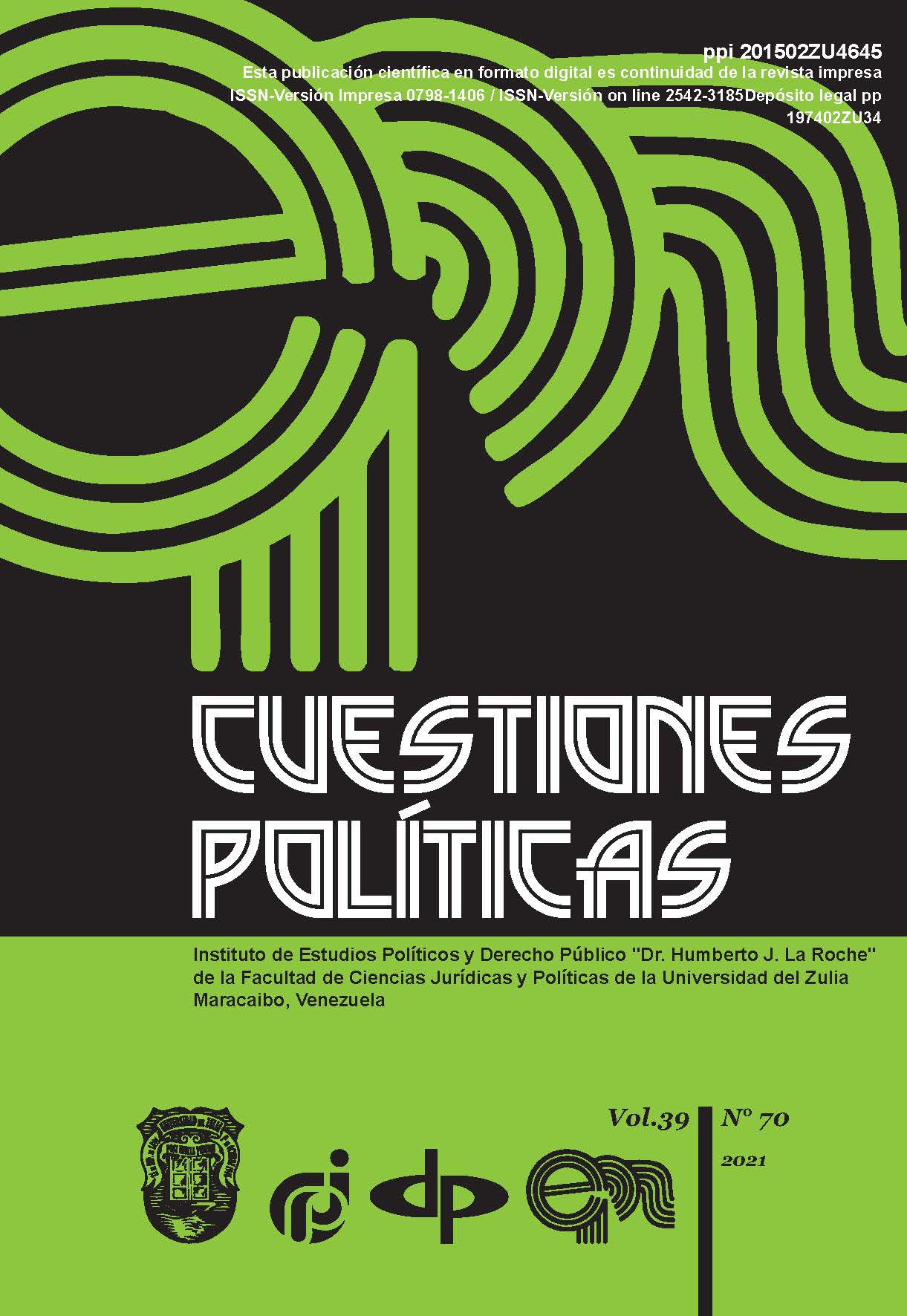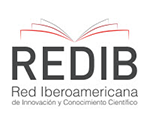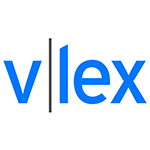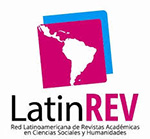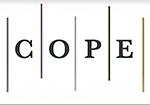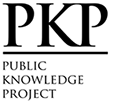Smart contracts in the context of digitalization: the legal realities of world experience
Abstract
The development of digital technologies is forcing lawyers to analyze phenomena that have recently looked fantastic. This means that a phenomenon like smart contracts has ceased to be a theoretical idea of improving commodity monetary transactions and now needs a legal justification. In this article, we have analyzed smart contracts in terms of their belonging to digital technologies and the legal field, that is, how they can be equated with legal agreements, if they are their analogues, what application can it find given the legislation in the field of civil (contractual) law. The purpose of our study was to establish a link between smart contacts and their legal regulation, with the feature of smart contract implementation perspectives. The methodology used are systemic and formal-legal methods, as well as methods of analysis and synthesis. The results found highlight that a smart contract is a computer code that is entered into a blockchain network to execute a transaction, the usual expression of which is an agreement between the parties. From a legal point of view, smart contracts are only a part of ordinary agreements (contracts) under the practice of international and national law.
Downloads
References
BHARGAVAN, Karthikeyan. 2016. Formal verification of smart contracts: Short paper. In Proceedings of the 2016 ACM workshop on programming languages and analysis for security. Vienna, Austria. Available online. In: https://dl.acm.org/doi/pdf/10.1145/2993600.2993611. Date of consultation: 19/12/2020.
BOYKO, Natalia. 2018. Smart contracts are really contracts and really “smart”.NAAU. Available online. In: https://unba.org.ua/publications/3169- smart-kontrakti%E2%80%93chi-spravdidogovori-ta-chi-dijsno- rozumni.html. Date of consultation: 19/12/2020.
BUTERIN, Vitalik. 2013. Ethereum whitepaper: A next-generation smart contract and decentralized application platform. Available online. In: https://ethereum.org/en/whitepaper/. Date of consultation: 19/12/2020.
CHEN, Lin. 2017. Decentralized execution of smart contracts: Agent model perspective and its implications. International conference on financial cryptography and data security (pp. 468–477). Springer. Available online. In: https://doi.org/10.1007/978-3-319-70278-0_29. Date of consultation: 19/12/2020.
CLACK, Christopher D; BAKSHI, Vikram A; BRAINE, Lee. 2016. Smart contract templates: foundations, design landscape and research directions. arXiv preprint arXiv:1608.00771. Available online. In: https://arxiv.org/ pdf/1608.00771v2.pdf. Date of consultation: 19/12/2020.
DE FILIPPI, Primavera; HASSAN, Samer. 2018. Blockchain technology as a regulatory technology: From code is law to law is code. arXiv. Available online. In: https://arxiv.org/abs/1801.02507. Date of consultation: 19/12/2020.
DE FILIPPI, Primavera; MAURO, Raffaele. 2014. Ethereum: The decentralised platform that might displace today’s institutions. Internet Policy Review. Available online. In: https://policyreview.info/articles/news/ethereum-decentralised-platform-might-displace-todays-institutions/318. Date of consultation: 19/12/2020.
DE FILIPPI, Primavera; WRAY, Chris; SILENO, Giovanni. 2021. “Smart contracts” In: Internet Policy Review Vol 10, No. 2. Available online. In: https://doi.org/10.14763/2021.2.1549. Date of consultation: 02/02/2021.
DENNING, Dorothy E. 2019. “Is quantum computing a cybersecurity threat?American Scientist” Vol. 107, No. 2, pp. 83-85. Available online. In: https://www.americanscientist.org/article/is-quantum-computing-a- cybersecurity-threat. Date of consultation: 19/12/2020.
EGBERTS, Alexander. 2017. The oracle problem-an analysis of how blockchain oracles undermine the advantages of decentralized ledger systems. Available online. In: https://doi.org/10.2139/ssrn.3382343. Date of consultation: 19/12/2020. consultation: 19/12/2020.
LAW OF ESTONIA. 2001. Law 81/487/2001, of September 26, 2001, Obligations Act. Available online. In: https://www.riigiteataja.ee/en/eli/ee/506112013011/consolide/current. Date of consultation: 19/12/2020.
FERREIRA, Agata. 2021. “Regulating smart contracts: Legal revolution or simply evolution?” In: Telecommunications Policy. Vol. 45, No. 2. Available online. In: https://doi.org/10.1016/j.telpol.2020.102081. Date of consultation: 02/02/2021.
GUADAMUZ, Andres. 2019. “All watched over by machines of loving grace: A critical look at smart contracts” In: Computer Law & Security Review. Vol. 35, No. 6. Available online. In: https://doi.org/10.1016/j. clsr.2019.105338. Date of consultation: 19/12/2020.
HAMLEDARI, Hesam; FISCHER, Martin. 2021. “Role of blockchain-enabled smart contracts in automating construction progress payments” In: Journal of Legal Affairs and Dispute Resolution in Engineering and Construction. Vol. 13, No. 1, pp. 1-38.
HULICKI, Maciej. 2017. The legal framework and challenges of smart contract applications. Conference on System Sciences, 3-4. Available online.In:http://www.cs.bath.ac.uk/smartlaw2017/papers/SmartLaw2017_ paper_3.pdf. Date of consultation: 19/12/2020.
INTERNATIONAL INSTITUTE FOR UNIFICATION OF PRIVATE LAW. 2010. UNIDROIT Principles of International Commercial Contracts. Available online. In: http://www.unidroit.org/english/principles/ contracts/principles2010/integralversionprinciples2010-e.pdf. Date of consultation: 19/12/2020.
KHARYTONOV, Evgen; KHARYTONOVA, Olena; KOSTRUBA, Anatolii; KALYCH, Maxym; TOLMACHEVSKA, Yuliia. 2020. “Laspeculiaridades de la regulación legal y no legal de las relaciones sociales en el ámbito del deporte”. (To the Peculiarities of Legal and Non-Legal Regulation of Social Relations in the Field of Sport). In: Retos, Vol. 41, pp. 131-137. Available online. In: https://doi.org/10.47197/retos.v0i41.84178. Date of consultation: 19/12/2020.
KHARYTONOV, Evgen; KHARYTONOVA, Olena; TKALYCH, Maxym; BOLOKAN, Inna; SAMILO, Hanna; TOLMACHEVSKA, Yuliia. 2021. “Intellectual property law in the field of sports: specifics of manifestations and features of legal regulation” In: Cuestiones Políticas. Vol. 39, No. 69, pp. 530-546. Available online. In: https://doi.org/10.46398/ cuestpol.3969.33. Date of consultation: 02/02/2021.
KOLOMOIETS, Tetianal; TKALYCH, Maxym; MELNYK, Petro; PANCHENKO, Bogdan; TOLMACHEVSKA, Yuliia. 2021. “Combating Corruption in Sport: Legal Aspect” In: Retos. Vol. 41, pp. 746-755.
KOLVART, Merit; POOLA, Margus; RULL, Addi. 2016. Smart contracts. In The Future of Law and eTechnologies (pp. 133-147). Springer. Cham. Available online. In: https://www.researchgate.net/profile/Tanel- Kerikmaee/publication/314538429_The_Future_of_Law_and_ Technologies/links/58c32c8445851538eb809e8c/The-Future-of-Law- and-Technologies.pdf#page=141. Date of consultation: 19/12/2020.
LEVI, Stuart; LIPTON, Alex. 2018. An Introduction to Smart Contracts and Their Potential and Inherent Limitations. Harvard Law School Forum on Corporate Governance. Available online. In: https://corpgov.law. harvard.edu/. Date of consultation: 19/12/2020.
LEVY, Karen E. 2017. “Book-smart, not street-smart: Blockchain-based smart contracts and the social workings of law” In: Engaging Science, Technology, and Society. Vol. 3, pp. 1-15. Available online. In: https:// doi.org/10.17351/ests2017.107. Date of consultation: 19/12/2020.
MIK, Eliza. 2017. “Smart contracts: Terminology, technical limitations and real world complexity” In: Law, Innovation and Technology. Vol. 9, No. 2, pp. 269–30.
MOSCA, Michele. 2018. “Cybersecurity in an era with quantum computers: Will we be ready?” In: IEEE Security & Privacy. Vol. 16, No. 5, pp. 38-41.
MOSCA, Michele. 2016. A quantum of prevention for our cybersecurity. Global Risk Institute. Available online. In: https://globalriskinstitute.org/ publications/quantum-computing-cybersecurity/. Date of consultation: 19/12/2020.
MÜHLBERGER, Roman. 2020. Foundational Oracle Patterns: Connecting Blockchain to the Off-Chain World. In: Asatiani A. et al. (eds) Business Process Management: Blockchain and Robotic Process Automation Forum. BPM2020.LectureNotesinBusinessInformationProcessing.Vol 393. Springer, Cham. Available online. In: https://doi.org/10.1007/978- 3-030-58779-6_3. Date of consultation: 19/12/2020.
MYRONETS, Oleksandr; SUKHANOV, Oleh. 2020. On smart-contracts in Ukraine. Science, Research, Development. Available online. In: http:// xn--e1aajfpcds8ay4h.com.ua/files/114_01_vii_2021.pdf#page=32. Date of consultation: 19/12/2020.
NOFER, Michael; GOMBER, Peter; HINZ, Oilver; SCHIERECK, Dirk. 2017. “Blockchain” In: Business & Information Systems Engineering. Vol 59, No. 3, pp. 183-187. Available online. In: https://core.ac.uk/download/ pdf/301372278.pdf. Date of consultation: 19/12/2020.
OSMOLOVSKAYA, Anastasia Sergeevna. 2018. “Smart contracts: functions and applications” In: Business education in the knowledge economy. Vol. 2, No. 10, pp. 54-56.
TRANS-LEX. 2002. Principles of European Contract Law (PECL). Available online. In: http://www.trans-lex.org/400200/. Date of consultation: 19/12/2020.
PEREZHNIAK, Boris; HRYSHCHUK, Alina; MENSO, Iryna; STRUKOVA, Kristina; NAZARKO, Arkadii. 2021. “Local Self-Government in Public and Private Law: Latest Experience” In: Amazonia Investiga. Vol. 10, No. 41, pp. 211-23. Available online. In: https://doi.org/10.34069/ AI/2021.41.05.21. Date of consultation: 19/12/2020.
PRYAMITSYN, Volodymyr; KOVALIK, Konstantyn. 2021. “Protection of personal data when concluding smart contracts” In: Legal position. Vol. 1, No. 30, pp. 94-97.
RASKIN, Max. 2017. “The law and legality of smart contracts” In: Georgetown Law & Technology Review. Vol 1, pp. 305-341.
REIJERS, Wessel. 2018. “Now the code runs itself: On-chain and off-chain governance of blockchain technologies” In: Topoi. Pp. 1-11. Available online. In: https://doi.org/10.1007/s11245-018-9626-5. Date of consultation: 19/12/2020.
SKLAROFF, Jeremy M. 2017. “Smart contracts and the cost of inflexibility” In: University of Pennsylvania Law Review. Vol. 166, pp. 263-303. Available online. In: Https://scholarship.law.upenn.edu/prize_papers/9/. Date of consultation: 19/12/2020.
SZABO, Nick. 1997. The idea of smart contracts. Nick Szabo’s Papers and Concise Tutorials. Available online. In: https://www.fon.hum. uva.nl/rob/Courses/InformationInSpeech/CDROM/Literature/ LOTwinterschool2006/szabo.best.vwh.net/idea.html. Date of consultation: 19/12/2020.
SZABO, Nick. 1996. “Smart contracts: Building blocks for digital markets” In: EXTROPY: The Journal of Transhumanist Thought. Vol. 18, No 2.
TKALYCH, Maxym; DAVYDOVA, Iryna; TOLMACHEVSKA, Yuliia. 2020. “Current State and Prospects of Development of the Sports System of Ukraine: Legal Aspects” In: Retos, Vol. 38, pp. 385-389.
TRANS-LEX. 2009. Draft Common Frame of Reference (DCFR). Available online. In: https://www.trans-lex.org/400725/_/outline-edition-/. Consultation date: 11/02/2020.
LA OF UKRAINE. 2003. Law 435-IV/2003, of January 16, Civil Code of Ukraine. Available online. In: https://zakon.rada.gov.ua/laws/show/435- 15#Text. Consultation date: 11/05/2020.
VERES, Ihor. 2020. “The legal nature of a smart contract” In: Entrepreneurship, Economy and Law. Vol. 9, pp. 15-18.
VOLOSHYNA, Vladlena; SHYLIN, Denys; CHEREMNOVA, Antonina; PRYTULIAK, Valerii; STEPANETS, Yurii. 2019. “Show Business Contracts: Civil Legal Analysis of Ukraine Legislation with International Application Experience” In: Amazonia Investiga. Vol. 8, No. 22, pp. 141-146. Available online. In: https://amazoniainvestiga.info/index.php/ amazonia/article/view/38. Date of consultation: 19/12/2020.
VOSHMGIR, Shermin. 2017. “Disrupting governance with blockchains and smart contracts” In: Strategic Change. Vol. 26, No. 5, pp. 499-509.
ZHENG, Zibin. 2020. “An overview on smart contracts: Challenges, advances and platforms” In: Future Generation Computer Systems. No 105, pp. 475-491. Available online. In: https://arxiv.org/pdf/1912.10370.pdf. Date of consultation: 19/12/2020.
ZHOU, Mimi; CHENG, Grace; HEREDIA, Marta Soria. 2019. In code we trust?Trustlessness and smart contracts. Computers and Law. Available online. In: https://www.scl.org/articles/10493-in-code-we-trust-trustlessness- and-smart-contracts. Date of consultation: 19/12/2020.
Copyright
The authors who publish in this journal agree to the following terms:
The authors retain the copyright and guarantee the journal the right to be the first publication where the article is presented, which is published under a Creative Commons Attribution License, which allows others to share the work prior to the recognition of the authorship of the article work and initial publication in this journal.
Authors may separately establish additional agreements for the non-exclusive distribution of the version of the work published in the journal (for example, placing it in an institutional repository or publishing it in a book), with an acknowledgment of its initial publication in this journal.
This work is under license:
Creative Commons Reconocimiento-NoComercial-CompartirIgual 4.0 Internacional (CC BY-NC-SA 4.0)


